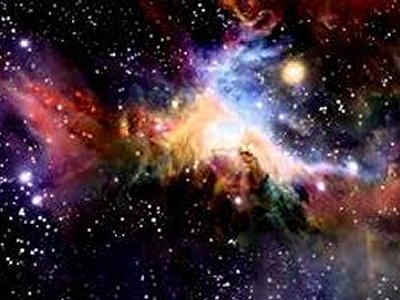
STILL GOING BOLDLY
Star Trek has always projected contemporary concerns into space to help us reflect on life, offering rich pickings for Christian apologetics
Paramount Pictures was never going to miss the opportunity to release a Star Trek film in the fiftieth year since it first aired on network TV. After the tearing up of an initial script, it took the speedy efforts of self-confessed Trekker Simon Pegg to birth Star Trek Beyond. Despite good reviews, it may not endure so well, with its very contemporary sugar rush of chaotic action. Star Trek has always been character-driven, unusually for a science fiction show.
In its original form, Kirk and Spock enjoyed a bromance before we coined the word; McCoy and Spock endured a love – hate relationship coated with casual Southern racism; Sulu and Chekov suggested to 60s American that its most recent foes – Japan and Russia – would serve alongside them in the future; Uhura was the first black woman shown in a position of leadership on US TV and hers the first inter-racial kiss. Martin Luther King encouraged her in the role for the example it set – one reason Whoopi Goldberg would later appear in Next Generation when she had no need to. Barack Obama and Colin Powell are unashamed fans of the show.
The founding philosophy was liberal, humanitarian, ultimately utopian, and based on the world-view of its creator Gene Roddenberry. The United Federation of Planets was the United Nations projected onto the cosmos. After his death in 1991, Star Trek took on a more dystopian shape, in itself part of a wider and darker millenarianism at work in today’s cinema.
Its attraction is predicated on the friendship of the characters, but it has always successfully projected contemporary concerns into space to help us reflect on our own weakness and mortality. Star Trek Beyond posits the threat to the United Federation of Planets from a rabble-rouser named Kraal who sees its grand canopy, multi-lateral co-operation as a force for bad, not good. Populist, unilateralist politicians take note: I think Kraal means you. At times Star Trek has been eerily prescient. Next Generation nemesis the Borg, a collection of species turned into cyber-drones with a hive mind, both played on fears of the loss of individuality and prefigured the internet with its endless, inter-connected babble of voices in the head.
Star Trek has been careful not to feature God, though many god-like creatures appear, usually to be unmasked as needy and venal. The absence of God, inevitably, makes it by default a secular view of the cosmos. Yet there is an inexhaustible channel of theological themes and Spock especially appears as a type of Christ with his sacrifice for the crew and subsequent ‘resurrection’ in The Wrath of Khan and The Search for Spock. A significant number of baby-boomer Christian leaders who grew up with the show retain affection and loyalty to the brand, perhaps because it has offered an idealised view of fellowship and hope. In its first series, the producers considered giving the Enterprise its own chaplain. Some of us were simply born three centuries too early.
POPULAR ARTICLES

Obama's Covert Wars
The use of drones is going to change warfare out of all recognition in the next decades.

Through A Glass Starkly
Images of traumatic incidents caught on mobile phone can be put to remarkable effect.

What Are British Values?
Is there a British identity and if so, what has shaped the values and institutions that form it?


